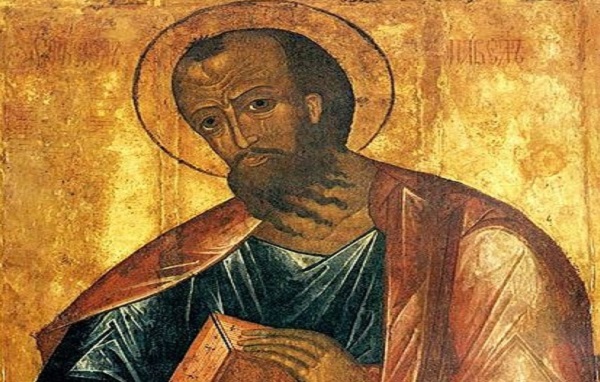Sermon on the Apostolic reading for the Sunday of the Holy Fathers of the First Ecumenical Council (Acts 20: 16-18, 28-36)
27 May 2023For this particular reading from the Acts of the Apostles, we see the Apostle Paul imparting his spiritual legacy upon the presbyters of Ephesus in an emotional farewell address at the seaside town of Miletus. Our Church, in its wisdom has chosen this passage as the one to be read today, in honor of the Holy Fathers of the First Ecumenical Synod. This is because the Holy Fathers have taken to heart these words of St. Paul in how they lived, and we commemorate this faithfulness today.
The Apostle had remained in Ephesus for three years straight, working to found one of the largest Churches in Asia. At the conclusion of his third Apostolic Tour, he set sail for Jerusalem, to celebrate Pentecost there. On the way, he stopped at the coastal city of Miletus. While there, he invited the presbyters of the neighboring Church of Ephesus for a meeting. St. Paul knew that this would be the last time he would see them, and so he wanted to strengthen them in their difficult pastoral and missionary work, as well as say goodbye to the Church he had labored for, for so long.

St. Paul, in his address, told the Presbyters who had longed to meet him: “Take heed to yourselves and to all the flock in which the Holy Spirit has made you Overseers, to shepherd the Church of God, which He purchased with His own blood “(verse 28). With these words, he is calling the Presbyters to a deeper vigilance: To look after themselves, and the people who are in their care. Let us examine this passage more closely:
First, “Take heed to yourselves” is a reminder that they should be a model of faith and a pure life. That they put into action what St. Paul had preached day and night for three years (verse 31). The shepherds of the Church need to be aware of how they themselves live, because a Gospel centered life will inspire other Christians to follow, and in so doing all will grow spiritually.
Second, the shepherds of the Church need to watch their flock carefully, which the Holy Spirit has entrusted to them. The people need to be taught the correct doctrines of the faith. They need to be protected from people who prowl like wolves, leading believers away from the Church with wicked words and ways. St. Paul was deeply concerned about this, because he knew that after his departure, these “wolves” would seek to prey upon the faithful of Ephesus. He realized that some of these deceivers would be among the Ephesians themselves! This is why the shepherd must always be interested in the salvation of his people, the Church of Christ. Because, as St. Paul points out, Christ gave His Precious Blood for His Church (see verse 28).
How much care is needed, my brothers and sisters, for all of us to avoid falling into the mouth of the wolf-devil and his helpers. In a variety of ways, they attempt to cut us off from the One Holy Church of Christ. Either by twisting the doctrines of faith or with anti-Christian ideas, they seek to divide us and to distract Christians from realizing where their Salvation lies. Christ, as we heard in today’s Gospel reading, prayed on Gethsemane for those who believe “to remain united” (John 17:11). This is what the Apostle Paul sought: that the faithful be united with Christ as one. The goal of the “wolves” is to separate us, and take people for themselves.
At the conclusion of the Apostolic Reading, the writer of Acts presents a very moving scene: After St. Paul finishes speaking, he entrusts his spiritual children to the protection of God (see verse 32) and he knelt down (and all the Presbyters with him), praying for them all (see verse 36).
With such excellent examples to guide us, let us do our best to remain faithful to the Church. May we all trust ourselves and each other to Christ, Almighty and merciful God, praying for the Church with all the power of our souls. Amen.






